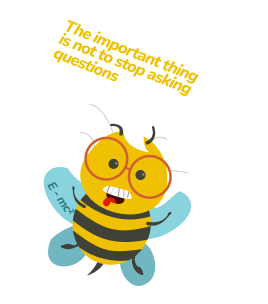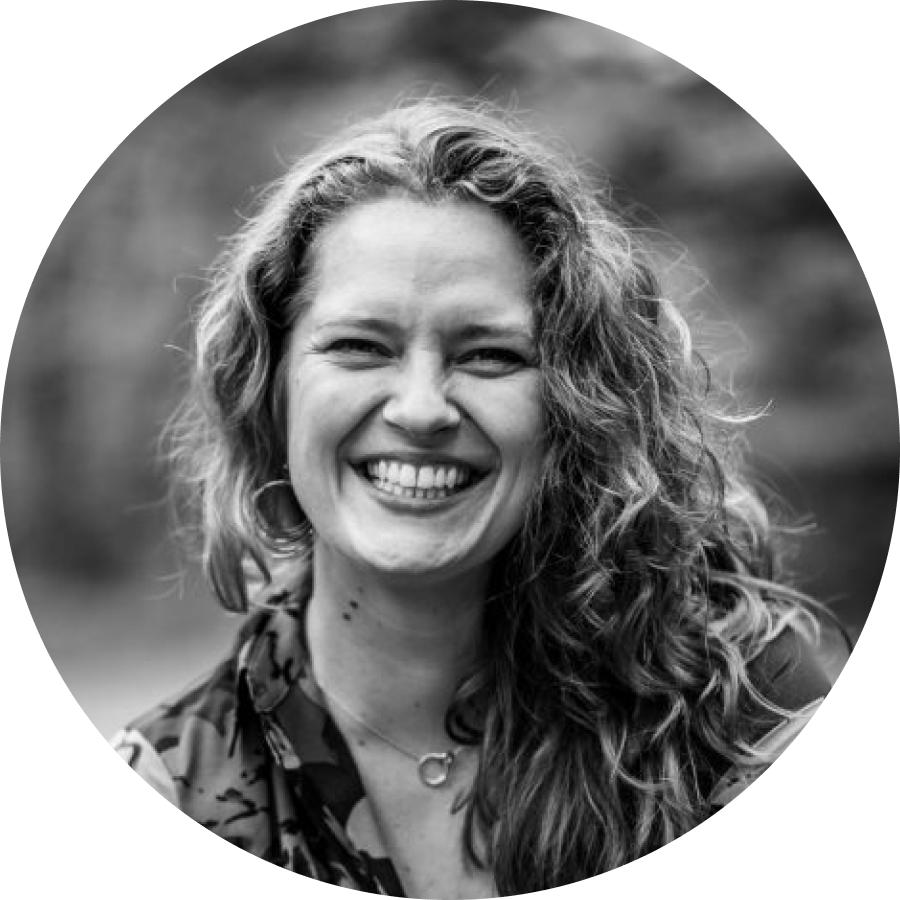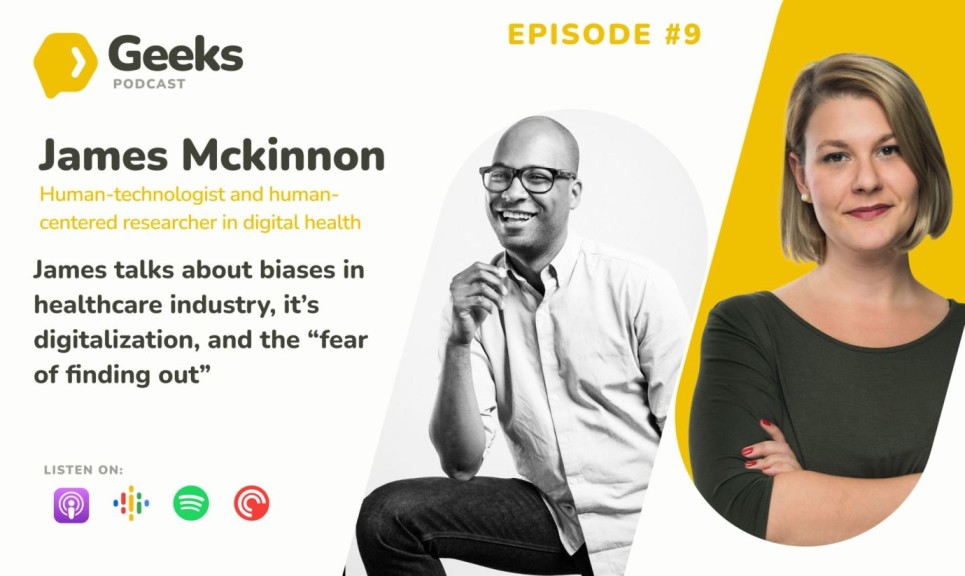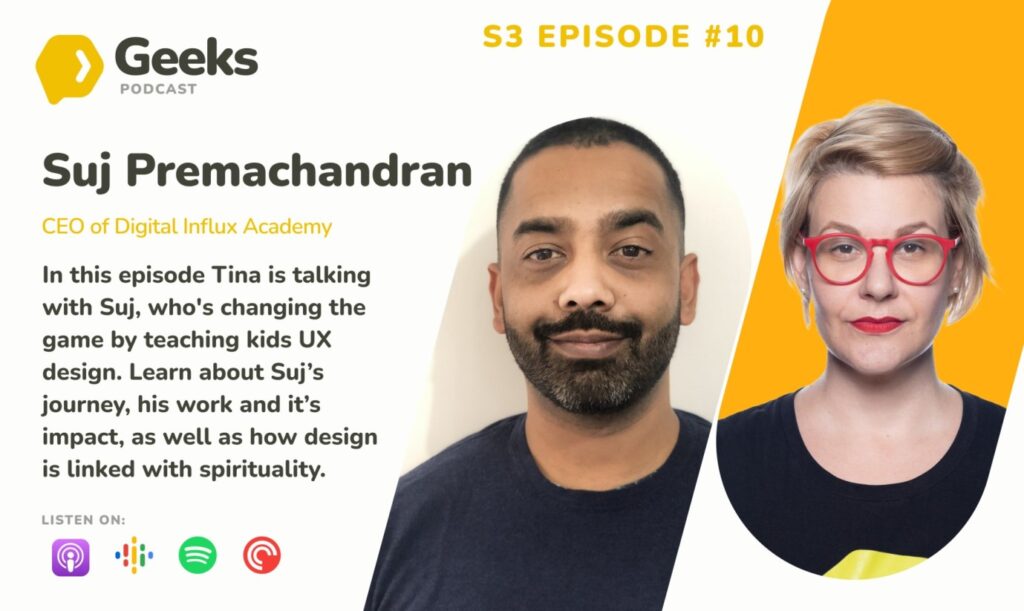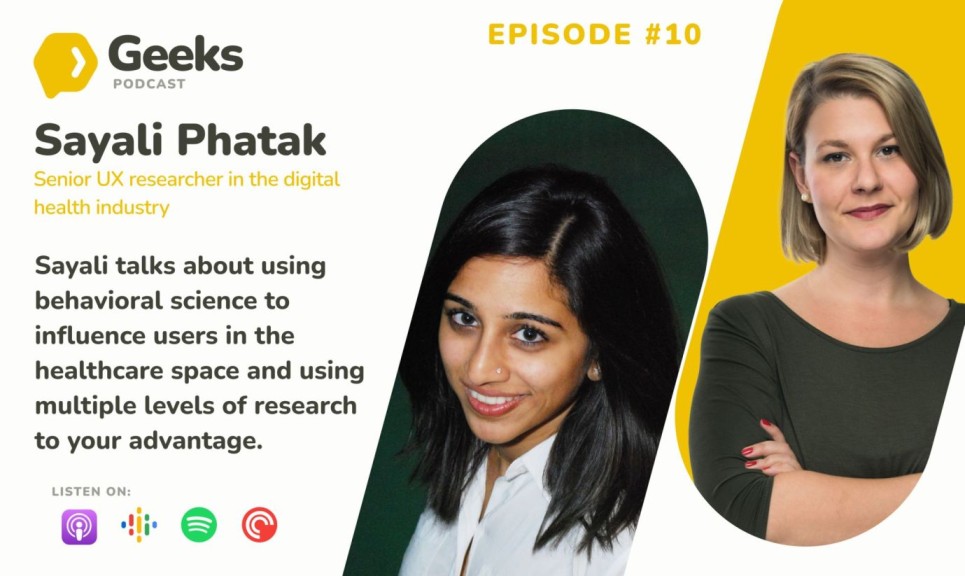Episode highlights
00:02:42 Elke’s Journey to Practical Philosophy
00:08:49 The Role of Silence
00:18:27 Balancing Knowledge and Curiosity in Research
00:24:03 Cultural and Gender Context in Dialogue and Intervention
00:28:47 Implementing Socratic Dialogues in Everyday Life
00:32:23 Importance of Developing Questioning Skills
About our guest Elke Wiss
Elke Wiss, the founder of De Denksmederij, is a professional excelling in various roles as a writer, speaker and theater maker. She is dedicated to practical philosophy, critical thinking, and the art of profound questioning. Through De Denksmederij, Elke facilitates meaningful dialogues, fosters connections, and nurtures creativity via training, workshops, and individual coaching. Elke is also the author of the international bestseller “How to Know Everything: Ask Better Questions, Get Better Answers,” reflecting her commitment to empowering individuals and organizations in the pursuit of clearer, more creative, and critical thinking, with the ultimate goal of contributing to a better world. Connect with Elke Wiss on her official website and LinkedIn to explore her diverse work.
Podcast transcript
[00:00:00] Tina Ličková:
Welcome to UX Research Geeks, where we geek out with researchers from all around the world on topics they are passionate about. I’m your host Tina Ličková, a researcher and a strategist, and this podcast is brought to you by UXtweak, an all-in-one UX research tool. This is the 16th episode of UX Research Geeks. I came across Elke Wyss, speaker, author, and trainer when exploring workshop possibilities to learn more about the simplest, yet the most important tool of our work, the questioning. Elke guides philosophical conversations and provides training, education in critical thinking, practical philosophy, and the art of questioning, which she beautifully summarized in her book Socrates and Sneakers, translated to English as How to Know Everything: Ask better questions, get better answers. You will find the link to this book under this episode. So I’m happy that we can offer you this short and sweet episode. with her and offered by dad and not a beautiful inspiration for research work.
Elke my first question and welcome to the show would be who are you and why are you so interested in questions?
[00:01:28] Elke Wiss: I love this question already. Who I am is already a big philosophical question depending on your perspective Arlind. For now, I would say my name is Elke Wyss. I used to be a theater director and teacher, so I wrote theater plays.
I still write, I directed plays. I gave lessons on how to perform on stage. And as such, I found myself being very curious as to how I can structure my thinking in such a way that I can speak with more clarity. For example, or how can I ask questions because I develop my place with the actors, it’s not like I wrote something and then said, here, you go perform it.
And sometimes in these creative processes, there are big topics to cover. We wanted to make a play, for example, about courage or about connection or about family dynamics. So how can I ask questions that will gain some insight or some wisdom so that we can develop our thinking and therefore our creative end product.
So that was the starting point for myself. to become very curious about practical philosophy.
[00:02:42] Tina Ličková: How did you approach it? Okay, you started to watch practical philosophy online courses. Can you explain maybe that?
[00:02:51] Elke Wiss: Yeah, that’s also a good one because it was not like there were a lot of courses or books with the title practical philosophy on it.
To be honest, I didn’t, I’ve, I’d never even heard of the term practical philosophy. So when I started to know this tendency of how can I structure my thinking? How can I ask better questions? My first idea was I’m going to look for a course in coaching. Because that’s what coaches do, I thought.
They ask questions. So I bought a course. I got like this big folder of 300 pages and I swiped through it. I was very disappointed because it was didactically and pedagogically. A very poor structured course. So I had to look further and then I stumbled upon this thing called practical philosophy. And I thought that’s a contradiction.
Is it not? How can philosophy be practical? I, so many other people thought it was vague or difficult or for old people who are retired and they do philosophy, it turned out that was not the case, so I found a course. It took about eight months. And each two or three weeks we had one or two days with the lessons and clinics.
And the first day we had a Socratic dialogue and I was hooked. I was so amazed by the way of the structured dialogue that we got to have. And I was like, Oh my God, I got to be nearly 30 years old. And this is the first time that I actually witnessed something that I can now call a dialogue and everything here before this, if I think about it now.
Cannot even call it a dialogue. So I was so surprised and so happy to have found this.
[00:04:38] Tina Ličková: What is the main difference, because when you say it was, there was a before and after, let me understand maybe the essence of it better, where you are saying it wasn’t even a dialogue before, why it’s now what you are, when you’re speaking to people and asking the question, why do you think it’s more dialogue ish?
[00:04:57] Elke Wiss: Because I discovered that what we usually do is that we hear something. And out of a reflex, we reply. We react. And in the philosophical way of having a dialogue, it is much more structured. We don’t react out of reflex, we react out of critical thinking. So the pace of a philosophical dialogue is usually much more slow than our everyday conversations.
It’s also much more disciplined. in the sense that we listen very carefully and critically to what are you saying, which words are you using, which words are you avoiding maybe, and what does it imply. So there is this analytical element combined with structure and discipline that’s usually not present in our everyday conversations.
They tend to go From one topic to the other, we tend to say to each other, Oh, I had the same experience because I had it last year. So that’s not exactly a structured dialogue, but it’s merely an exchange of anecdotes or advice or opinions. Does it make sense?
[00:06:04] Tina Ličková: It makes sense. It makes sense. I’m trying to listen to you and I’m also trying to catch my thoughts that I’m writing notes like that.
I can come back to it. And some of the things, one open door that I see is the love for Socrates that we probably share. And the second is the analytical element, which I am maybe going now to, we can go back to Socrates later on. When you are saying. That we react for me as a person, and that’s very subjective right now.
It’s the analytical element in me being very reactive. For researchers, we try to be very mindful of the analyzes of the conversation we are in right at the. Certain moment, and we do the analysis afterwards, even we re watch the videos and re watch the conversation. So we get the distance from it. Can you maybe explain how you use this analytical element a little bit more.
[00:07:05] Elke Wiss: Yes. So I think in practical philosophy, there is an element of analyzation at the moment. So let’s say, for example, we’re having a dialogue about the question, what is freedom? Just, I like working with examples because it’s a bit more concrete sometimes.
What is freedom? And you try to answer this question. And in that moment, I have to analyze your answer and ask myself, is it complete? What argument is she giving? What type of argument am I hearing? Is it like a circular, what’s the word in English? Is it a circular argument or not? Does it make sense? Does it hold?
What is she implying? What is she missing? Because only then can I question you or add something or point towards here you’re saying something obvious. So you’re not quite there yet. Can you make a better argument? So instead of analyzing in retrospect, like afterwards, we have to do some analytical work within the dialogue itself.
[00:08:05] Tina Ličková: It’s interesting because if I’m thinking about how I did… Interviews or conversations with people in my research projects for a long time. It was very much like going through the script. And checking the boxes, did I hear the answers to this? And it started to change for me about two, three years ago, where I started to listen more and put the analytical thinking into it and reacted more on what was just said and trying to go deeper.
Yeah. But that’s just a note on it. I’m wondering. And it just came out of nothing. What is the function of silence in a dialogue that you are mentioning?
[00:08:49] Elke Wiss: I would first like to start with our daily habit of avoiding silence. In our everyday conversations, we find We tend to find that silences are awkward or that they have to be avoided.
So we just start producing words, which do not necessarily add to the dialogue that we’re having. They’re just to produce something. And I think the value of silence cannot be underestimated because even in our everyday dialogues. How nice can it be to just think about what you’re going to say? And it can be as quick as three or four seconds, but I would say the functioning, the function of silence in the way that I see it is to structure your thinking, to formulate a question before you pronounce it.
Because sometimes if you formulate a question in your head, you already can see that’s not really clear. What am I looking for exactly? And instead of asking six questions, because you hear yourself say it, and I think, oh, that’s not good, I’ll try this one, oh, that’s not good, I’ll try this one, take a moment of silence, repeat the question in your mind.
I think, yeah, that’s what I want to ask, which of course provides clarity. in the dialogue, because the person across the table doesn’t have to deal with six vague questions. They just get one. So it’s structure, it’s attention, the direction of attention. What am I hearing? What is she saying? What is she not saying?
And all this can be done in silence.
[00:10:19] Tina Ličková: When you are saying, what is she not saying? This is a part of what UX researchers get really excited. Are there any, maybe even hacks, tricks on how you, from your perspectives and your approach are trying to figure out what people are not saying?
[00:10:37] Elke Wiss: Yes, there are. I think you get there by looking at what they are saying explicitly and then questioning yourself and the other.
With what does it imply? For example, person in a conference call or in a meeting says something like, safety is so important. You should never play with it. Safety is so important. You should never play with it. This implies a lot. If we’re quick listeners, then we forget to think about what does this imply?
It implies, for instance, a person knows what safety means. Or at least he or she, or they think they do. But do we have the same definition of safety? What sort of safety are we speaking about here? Is it psychological? Is it physical? What are we doing? The person claims to know what importance means. You can also hear the word never, which points to a sort of dogmatic thinking when it comes presuppositions.
In one statement, you can see what a person says explicitly, but also what they imply. They imply to know things. Which we can question, and you can analyze some structure or some pattern of thinking in this case, in this topic, this person tends to be a little bit dogmatic.
[00:11:55] Tina Ličková: Super interesting. And I’m amazed because I think, and that’s now a little bit of a cliche and probably a stereotype, introverted people tend to think more before they ask or speak.
How would you say? Can a person help themselves to be so mindful of being in the present moment and being able to analyze what was just said so specifically, how you just described?
[00:12:21] Elke Wiss: Yes, we have to train this if we want to get better at it. And some people, like you say, are more naturally slow in pace and other people can be high in energy, so they are quicker, which means more work in slowing yourself down.
I would say, know yourself, like our… Hero Socrates tells us to do. Know your tendency, know your pace, know the pace of the other person. And then I would add, I think, two things. One is the art of dialogue is mostly the art of shutting up. So if you know yourself to be like a babble mouth, to talk a lot, to talk fast, train yourself to keep your mouth shut, to give space to the other.
Train yourself to slow down, to think about what you’re going to say before you say it. And speak in one or two sentences maximum. And that’s already a hard job for a lot of people. And the last thing that I would like to add is. And notice how egocentric you are. We all are, by the way. We are so egocentric that we cannot wait to talk about ourselves.
You share this, I don’t know, experience with, and you have a friend and she’s crying because she left her husband. And I cannot wait to tell you about this time when I had a friend and she lost her husband. So the egocentric part within ourselves, we have to put it nicely in a corner, give it a cup of tea and say, thank you.
You’re not welcome in this conversation. And that’s also sometimes a very hard thing to do. Does it answer your questions?
[00:13:48] Tina Ličková: Answers. It’s, there are several things going in my head and one of the thoughts is. And now I really want to open up to Socrates inspiration. Where is it coming from you? Because I remember I was 14 years old when I was reading the book Sophie’s Introduction to Philosophy.
I love it. I still have it. I bought it in Czech language again to give it to my little neighbor when she’s there. And then how much I was touched when I was reading Socrates Defense in Court. I don’t know, one of the biggest pieces. It’s lovely. It’s unbelievable touching. But then on the other hand, you have this agent provocateur in Socrates.
And I am always struggling to synchronize this to personality in Socrates, especially in the space of dialogue, where he’s the provocateur, but he’s also this very mature moral human in my understanding. Where exactly is your inspiration and how do you get inspired by Socrates?
[00:14:50] Elke Wiss: I think much in the same way.
It started with something that we now call a Socratic dialogue, which is inspired by what Socrates did two and a half thousand years ago, and a German philosopher, he extracted like this method out of it, structured dialogue based on what Socrates did. So that was my first encounter with even like Socrates.
What, who was he? What did he do? And the method by itself, it’s inspired by Socrates, but it’s not a hundred percent. what Socrates did. And of course, we don’t even know what Socrates did, because he never wrote a thing. So we cannot be sure how much is the fantasy of Plato or how much is historically accurate.
But my inspiration, I think, consists of the method of the other hand, and then the person on the other. And the method in itself is great. It’s very modern. We call it the Socratic method, but we rarely explain. What it has to do with Socrates, apart from a few sentences, the person that we know from Plato’s books, I find it, I’m amazed by the irony, the wit, the direct, the way of never giving up, not even wanting to be liked with something that I’m bothered with still sometimes.
So I think it’s very inspirational. And of course he was a pain in the ass. And he knew it and he acknowledged it in all my own modern, I’m a woman, I’ve had an upbringing of be nice, be liked, smile, where if you want to ask people the tough questions, you provoke being disliked. So in this way, Socrates helps me to borrow a little bit of his personality, maybe.
[00:16:27] Tina Ličková: Yeah, the socialization I am, that what it was, is definitely one of the thoughts, gender socialization is one of the thoughts that came into my mind while listening to you. I read somewhere that women tend to ask reinsuring.
It’s a statement being turned into a question just to be sure that I’m right, that I’m doing the right thing.
[00:16:54] Elke Wiss: So it’s not really a question then. The question is, do you see me? Am I good enough?
[00:16:58] Tina Ličková: Yeah. Confirmation. Is that okay for you? I’m, am I not overstepping with me being me, your kind of boundaries?
Yeah. And that brings me maybe to. The performance of questions sometimes, and I’m trained through the classical training of trainers years ago in facilitation. And one of my mentors was always telling us. If you are in a group and somebody asks a question and usually the very active people who are more extroverted and want to speak and they also put something into a question, but it’s more of an act of this is how I perform and I will tell you what I know.
[00:17:35] Elke Wiss: Yes. I love those.
[00:17:38] Tina Ličková: Yeah, everybody loves that. It’s okay, what do you want to say with this? You can turn it, of course, into the group dynamic, but I know it’s happening also to us user researchers as well, because if you’re especially for a longer time in a certain topic, you are a human, you lose your curiosity and you start to have hypothesis on a goal.
Because you already know a lot about the topic. How would you, what would be your advice to not be trapped by our own hypothesis about topics? How would you say, is it possible to be… aware and be coming back to the space of I am analytical and critical enough to ask open questions, to ask open questions, not just in the form, but in real meaning.
[00:18:27] Elke Wiss: Yeah, makes sense. So I think as a researcher, it’s your job to ignore your own knowledge because where knowledge enters, curiosity leaves the room. So you can be aware of, I have heard this before, or I see some connections that I had, that I see to other interviews that I’ve done last week or last month, and it sounds so simple, but it really comes down to ignore them and pretend you know nothing.
Socrates said, I know that I know nothing. Because if you pretend to know, or even if it’s just a little bit, you will not get. a surprising answer from the other person across the table that you would have if you would have thought, I know nothing, please tell me the obvious. So sometimes if we do like trainings or consultations or coaching, we tell people, imagine yourself, I don’t know, for some people it helps, imagine yourself being totally foreign.
You’re a foreigner to this country, maybe even this planet. What would you ask? Maybe, I don’t know, you’re like a figure from Mars or from outer space and you come here to the earth, what would you ask? You would ask all the obvious stuff, which leads to surprising answers. And a dialogue with more depth, because if you listen as if you do not understand what they’re talking about, then you start questioning the obvious, and then the other person has to work, really work much more than when we say, Oh yeah, I get what you mean.
So next question. So your job basically is to not understand.
[00:19:59] Tina Ličková: That’s a beautiful definition and we were talking about this because researchers are also and more and more in group dynamics and not only in focus groups, but we tend to, when we want to have the insights implemented and making an impact in the organizations that we work for, we facilitate workshops or are a member of teams and especially incorporate settings.
You can feel there are a lot of people. listening to the egocentric side. They want to, they like to listen to themselves. They like to even repeat stuff and are not giving the space. How would you say, should researchers navigate people? who are asking questions as a performative act?
[00:20:44] Elke Wiss: So it’s a very interesting topic.
Like, why do we want to speak so much? It’s just, it, to me, it’s strange. Why do we want to speak so much? Because we already own stories. We just want other people to hear them as well. To think that we are good or smart or that we know stuff or whatever. So when I was doing research for my book, So Good as in Sneakers, it’s called in German, and How to Know Everything in English, I stumbled upon this research that I was Amazed by the conclusion, the researchers found that if we speak about ourselves, they called it self disclosure, our body produces dopamine.
So we literally get high from speaking about our own thoughts, our own anecdotes, our own ideas, me, myself, and I. So the first job as a researcher is to understand where this is coming from. We are designed to do self disclosure. We’re designed to speak about ourselves because it just, it makes us happy.
It had a function, these researchers say, back in the ancient times, if I speak about myself, I reveal to you that I’m not a threat. You also produce dopamine when you speak about yourself, so you reveal something about yourself and then I know, okay, she’s also not a threat. And then we can go hunting, gathering, killing goats for, or whatever.
But nowadays, in these days and times, we cannot get away with this. Because then we’re all speaking about ourselves and nothing gets done and the tough questions don’t get asked. So your question was, in a group, if somebody, has a little monologue, has a little dopamine shot going on, how do we deal with this?
That was your question, right? Yes. Yeah. I think you have a few options there. You can play it the nice way, you can hear someone out, say thank you, and then go on to the next. You could lay out some ground rules when we do a Socratic dialogue, for example. We often have a seven or eight rules that we live by during this conversation, three or four hours or so.
One of the rules is you speak concisely. Concisely is that accurate? Like short, no monologues. Because the rules already there, if somebody’s in, so if somebody starts a monologue, I can ask, can you summarize in one sentence? So that’s also, even if you don’t lay out some ground rules at the beginning, that’s also a nice intervention.
If someone, is going on. Excuse me, Robert, can you summarize what you want to say in one sentence? So I think those are some tiny interventions that we can do to structure, because you’re looking for structure here, actually, in the dialogue. And having a monologue all by yourself is a lack of structure.
So you have to, if you’re the facilitator, you have to be the one inviting the structure.
[00:23:29] Tina Ličková: This is called having a monologue is a lack of structure. As a structured person, this resonates. Really nice.
[00:23:37] Elke Wiss: Yes. But it’s true now, if people go into monologue mode, they oftentimes, they take their gaze away somewhere else and they’re not even here, present.
So if you ask them, summarize in one sentence, and they get startled, Oh my God, but I’m used to getting all this time to explain myself. Yeah, exactly. Which is a lack of structure. And asking for one sentence is a big intervention, asking for structure.
[00:24:03] Tina Ličková: It is, I’m, what comes to me is cultural context and also as the gender context as well, because I am coming from pretty heavy patriarchal society and the all energy that I have, I am considered to be too strong.
And I know a lot of my girlfriends are getting this video because they’re alike as well. And it’s happening also in the professional context as well. It actually could offend somebody. So that’s where I’m thinking on how to use this intervention in different cultural and professional contexts in workshops and in interviews as well.
[00:24:44] Elke Wiss: So how is it your problem that the other one is offended by such a simple question? Interesting. You are offended by having to listen to an unstructured monologue for 10 minutes. That’s a bigger offense, I would say, than asking a person, gee, for my clarity, just so that I understand, can you summarize in one sentence?
Geez, if someone is offended by that, come on, then they have some work to do. By asking this, it seems like you are upholding the patriarchal system because you want to adjust to avoid someone being offended. That’s very interesting. We get these questions all the time, but how can I say this? Because I’m afraid that they won’t like me or that I’m offending them.
Change your perspective, which offenses are being made here, which is the bigger one, and whose problem is it actually, if they’re being offended by a question. To summarize in one sentence. Very nice. And of course, you can always go to the excuse mode, for example, saying, I’m asking because I really want to follow what you’re saying, so can you help me?
Which is true. You’re not asking to bother them. So in a dialogue, we want to be connected. We want to go at the same pace. We don’t want to lose the other person in a dialogue and then smile and say, Oh yeah, I got what you meant. And afterwards thinking, what exactly was he saying? Because then you’re doing all the work.
You’re probably not even doing it right because the other person has to say something about what he actually means. So this intervention, yeah, I cannot imagine how it cannot be thing.
[00:26:26] Tina Ličková: Super interesting. Listening to and speaking about the offense possible. It’s not only offending people by asking them something that offends them, but also many researchers work in spaces where there’s intimate stuff being discussed or interviewed about, or it’s very, I don’t know, it’s health area where it’s very intimate for some people.
Some people do research in the area or a field of sex, which is still a taboo. What would you say there should a person be aware when asking the question? Because you are also starting your book with a situation where you describe you overstepped somebody’s boundaries and what you took out of it.
And this is something where, okay, if somebody gets offended, It could be that the person is offending me with what you say, speaking too much. But if I offend the person and hurt somewhere where the person that wants to be protected, that’s a little different story.
[00:27:30] Elke Wiss: Yeah, I see where you’re getting at. So first of all, I would say don’t be nervous yourself.
It’s quite an obvious thing, but oftentimes when it gets uncomfortable, we get uncomfortable, which is something to avoid, I think. And I think it helps if you’re speaking about a sensitive topic to Approach it the same way you would as when it was not a sensitive topic. Because if we’re making it like heavy and we’re getting a little bit nervous around it, then of course it’s going to get.
And another thing in regards also to the the introduction of the book where I asked a question with all my pure intentions and the other was very offended, yeah. I think the key there is to ask permission before you throw the difficult questions in the direction of the other person. So for example, there was this question I would like to ask you.
I’m not sure. Maybe you don’t want to answer it. Maybe you do. Are you okay if I just. Ask, and then you can tell me if you want to dive into this topic or not. So then you give the person an exit, which they can take or not. But even by having this little introduction, it probably eases them. And of course it’s about control.
If I can have a sense of control, do I want to show this part of myself to you? Or can I keep the door closed? It’s up to me. Then I think you’re good.
[00:28:47] Tina Ličková: To close it up, because this is the. question of all questions that it’s the only one that I had prepared before, to be honest. And it’s coming from what I told you from the training, formal training that I had in psychology and training and facilitation.
If I’m starting to use any kind of methods from this education of mine, of course, it’s a topic of authenticity, but people tend to react in different ways. Some are very delighted and some get for example, my mom is an expert, don’t you try this method on me. I’m wondering how is it possible and how often and how could we have more quality dialogues, even Socratic dialogues in our real life with people around.
[00:29:32] Elke Wiss: I think the first thing is not to aim for a classical Socratic dialogue, because that is like way too big and people will notice and they will refuse. So of course a full on Socratic dialogue hardcore is something that you would have to do voluntarily, I think. But we can imply some Socratic skills, there is a Socratic skill set that we use from the Socratic method that we can do in our everyday lives, which refers to active, mindful listening, rather than listening to reply with my own stuff, listening to what we discussed before.
What is she saying? What does she mean? What was it like for her instead of coloring it up with my own story, asking a lot more questions than we tend to do. Asking precise questions. Those are all, it’s a whole Socratic skill set that anybody that is interested and curious can develop over time. And people will notice sometimes, and oftentimes they won’t.
Because they’re having all this dopamine going on because they can speak about themselves because you’re asking all the nice questions. And then they drive home after a party or after a lunch and they say, Oh my God, it was such a good conversation. I loved it.
[00:30:49] Tina Ličková: That’s interesting. If I get, and now I’m going to be stereotypical, messages after some meetings, especially for men’s after dates, it’s usually them speaking 80 percent of the time when they are like, Oh, thank you.
And when it’s this beautiful 50 50, which doesn’t happen often, there’s Usually no response.
I even consider myself not to be a typical person who was born with great questioning skills. I have some friends like this who are very natural. I had to be trained and I know how I did my training or how I am doing my training. What would be your advice? to people how to train in the art of conversation, in the art of questioning.
[00:31:33] Elke Wiss: I’m going to point to the obvious there as well. If you would ask me, how can I learn how to ride a bike? It’s practice. So the next question is, how do I practice? Where do I practice? Then I would suggest read a book. Of course, I can be like all promotional, read my book, but there are other great books as well.
There are Socratic or Philosophical Dialogues open to the public. Go visit one. Go participate in one. Do a workshop. Watch YouTube short clips of dialogues. Train your analytical eye. Observe dialogues and ask yourself, what’s not going right here? Who is asking the most questions? Are they in fact questions or are they merely statements and opinions with a question mark dangling at the end?
So every day you have like numerous possibilities to train your eye, your ear, your speech, your thinking. It’s a matter of actually having the discipline to do.
[00:32:23] Tina Ličková: Is there anything where you’re thinking, my God, Tina, why didn’t you ask me this? It’s one of my favorite questions.
[00:32:31] Elke Wiss: No, because I’m full on in this dialogue.
So if we were to have the same conversation next week, you would have asked me maybe other questions.
[00:32:39] Tina Ličková: Is there anything you would like to leave us with?
[00:32:42] Elke Wiss: Maybe with the promise that if you develop your thinking, your critical thinking, your analytical mind your questioning skillset. That you will gain so much creativity, there will be so much space within your mind, in your head, in your dialogues, that I would really say it’s worth your effort.
So just that.
[00:33:05] Tina Ličková: Beautiful. Thank you very much for your time, thank you very much for your wisdom.
[00:33:10] Elke Wiss: Yes, thank you as well.
[00:33:21] Tina Ličková:
Thank you for listening to UX Research Geeks. If you liked this episode, don’t forget to share it with your friends, leave a review on your favorite podcast platform, and subscribe to stay updated when a new episode comes out.
💡 This podcast was brought to you by UXtweak, an all-in-one UX research software.
